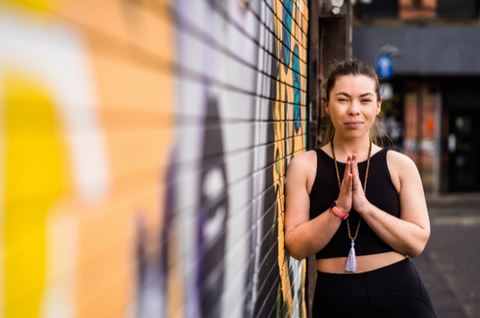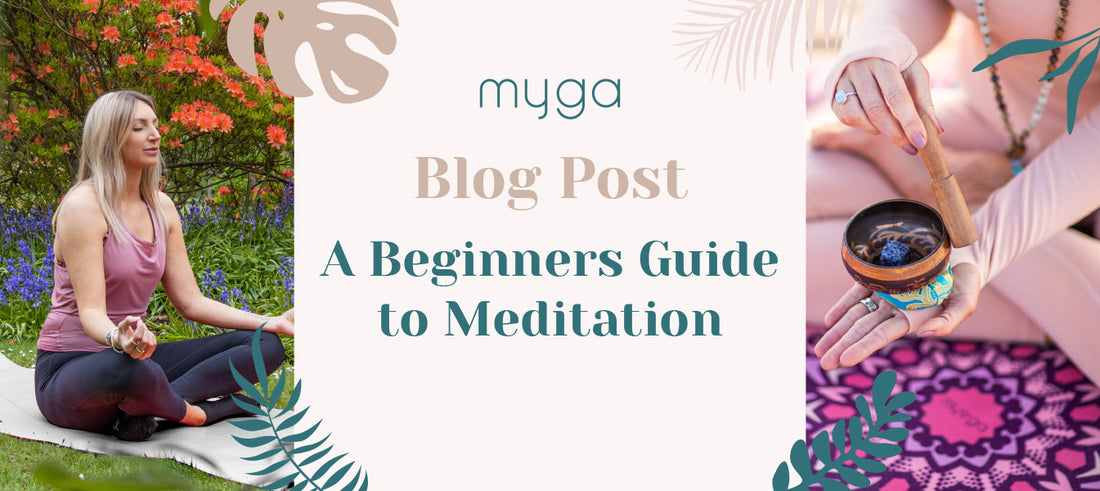Meditation: a tool once reserved for spiritual gurus and monks is now being practised by millions around the world from high powered businessmen to footballers and boxers. It has been talked about so much that most of us know that it is beneficial for our mental health to meditate but what is it all about? And how can you start you ask?
First things first, let’s start by busting some of those common myths.
- ‘I don't have the time to meditate.’ Meditating for just five to 10 minutes each day can help reduce stress you don’t need any more than that. The most important thing is keeping up the habit of coming back every day so your brain can reap the benefits of meditation.
- ‘I just can't stop thinking.’ Meditation isn't about ‘not thinking’. Your mind won't automatically shut off and become thought-free we are human. Instead, meditation can help you become more aware of your thoughts, and better regulate them over time.
- ‘Meditation is not something people like me do.’ Anyone can meditate. In fact, many business leaders from Bill Gates to Oprah Winfrey meditate in order to keep their minds clear, improve productivity, and be better leaders. It's important to move past outdated ideas of a guru meditating and understand that anyone — including yourself — has the time and ability to benefit from meditation.
I know first-hand that getting down to it can be a little intimidating so you, like me when I first embarked on my meditation journey might be wondering where to start? Sounds like you? Join me, as I explain its benefits further and share my 5 top tips for building a meditation practise into your busy lives.

It’s about time we valued working out mentally just as much as physically to find some much-needed inner calm.
5 TOP TIPS FOR MEDITATION
1. Find A Designated Space to Meditate
Choosing a room or a space to meditate can help train the body and mind to feel more comfortable and allow you to more easily transition into meditation. Think of it in the same way you'd only go to your home office to focus on work — it's important to set a dedicated space to help you stay focused on the task at hand: meditation.
Keeping your meditation space clean and uncluttered can help make each time feel special and important. It is also an opportunity to create a space that nourishes a more relaxed state of mind; for example, you could light candles or incense, add plants or crystals and most importantly, keep it a phone-free zone in your home. Maybe try adding some soft lighting with a Salt Lamp or put on some light music. By using the same scents and surroundings each time you are creating a ritual which can aide in making your meditation practise a repeated habit.
For meditation I like to stay seated, have a nice straight back and squeeze the shoulder blades together (but you can also lie down too). You can use a mediation support if you prefer such as one of Myga’s Zafu Meditation Cushion. You can also prop yourself up on a large flat Yoga Block. As always, comfort and warmth is key and my meditation comfy favourites include the Myga Hemp Hoodie and the Fleece Yoga Blanket.
2. Choose A Time to Meditate, And Stick to It
When you schedule a time of the day to meditate, it is easier to establish the practice as a habit, and you'll be more likely to do it each day.
For example, you may want to try pairing meditation with a daily habit you already have in place, like journaling before bed, or having a cup of coffee in the morning.
You also don’t have to spend hours meditating to see the benefits. Start by setting a timer for 5 minutes. I like to have a gentle alarm set so I’m not jolted up out of it when the time is up.
3. It Doesn’t Matter What the Focus Is
Mediation is like mental bicep curls. You’re bringing the mind’s attention back to one thing, again and again and again but it really doesn’t matter what the focus is. It is the practice of saying ‘okay, I see this thought’ and keep coming back to the same focal point. Then when you are encountering these things off the mat, you’ll have the training to use it in real life.
One meditation that I’m really enjoying lately is counting breaths, just notice as you inhale and exhale and that’s it. Another thing you can do is to meditate focusing on one thing, like a flame. And if there’s something that you can’t get off your mind, then meditate on that, but only that, you’ll be surprised at the answers you might find.
4. Find What Works for You
When it comes to meditation, it’s not a one size fits all policy. Everyone is different and it’s important to find a meditation that works for you – that might be breath-work, a body scan or a guided meditation. For me, I have found that different methods work on different days depending on my mood, my energy and the time of day. Start with very short meditations trying out new techniques as you go and build up slowly, a few minutes at a time as your focus increases.
5. Find Some Time To Do It The Next Day, Even If You Don’t Feel Like It
Meditation is no instant quick fix to solving all of life's problems. As with any other form of exercise, meditation takes effort, and it takes time to reap the benefits. The true power of meditation comes in creating a routine and making it a daily practice, especially on those days when you don’t feel like it.
I’ll let you into a secret; those days you aren’t motivated are going to be the days you need it the most! When we notice a resistance to meditation, we can use the resistance to our advantage and get curious about the reasons why we feel that way without judgement. So, if you do not want to meditate in that moment, that’s your invitation to just sit down and start. It’s the hardest part but with the discipline comes the lessons.
A 2018 study found that meditating for 15 minutes every day promoted positive well-being and reduced stress levels. The study concluded that daily meditation had a similar effect on the body to taking a week holiday. So, even though meditation may not feel like a vacation when you have to do it most days, remember that keeping up a routine is key to feeling these effects.
The beauty is you can find a few minutes for stillness wherever you are all you need is yourself. If you are away from your dedicated space you can informally meditate, be it in a supermarket queue or in the office toilets, a few minutes of internal focus can be all you need to switch up your outlook.
If it's difficult for you to stick to a daily meditation practice on your own, you may want to try using an app or class for further accountability and guidance.
- For daily use: Headspace
- For sleep: Calm
- For variety: Insight Timer
- For sceptics: Ten Percent Happier
- For newbies: Simple Habit
BONUS TIP: BE KIND TO YOURSELF
Try not to go into each meditation with expectations of how you will feel after, or how much better of a person you will become. Instead, approach each time to meditate as an opportunity to get to know your own mind better.
Just like bicep curls, the more you do, the easier it’ll get and just a little bit of mindfulness every day can have a profound effect on your mental wellness. Most importantly, remember that just like your asanas, meditation is a practice and as long as you start your journey with no hope for perfection and enjoy the exploration to the self, the effects can be profound. Apps can be a great way to get started, with many offering introductory guided courses.
Just remember, starting is the hardest part.
“The goal of mediation is not to get rid of thoughts or emotions. The goal is to become more aware of your thoughts and emotions and learn how to move through them without getting stuck.” – Dr. P Goldin

Just remember, starting is the hardest part but just a few minutes each day could create huge shifts in the mind. If you have any meditation tips of your own, we’d absolutely love to hear them. Please share with us in the comments below.
BIO: Jen Wildes is a practising vinyasa yoga and meditation teacher in Manchester, UK. Follow her on instagram @_zen_with_jen_

